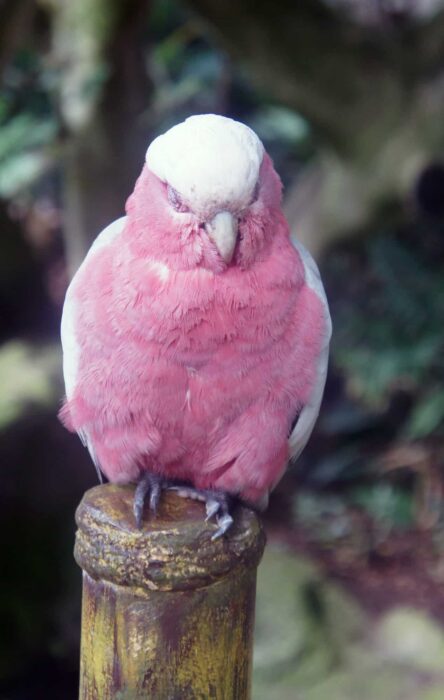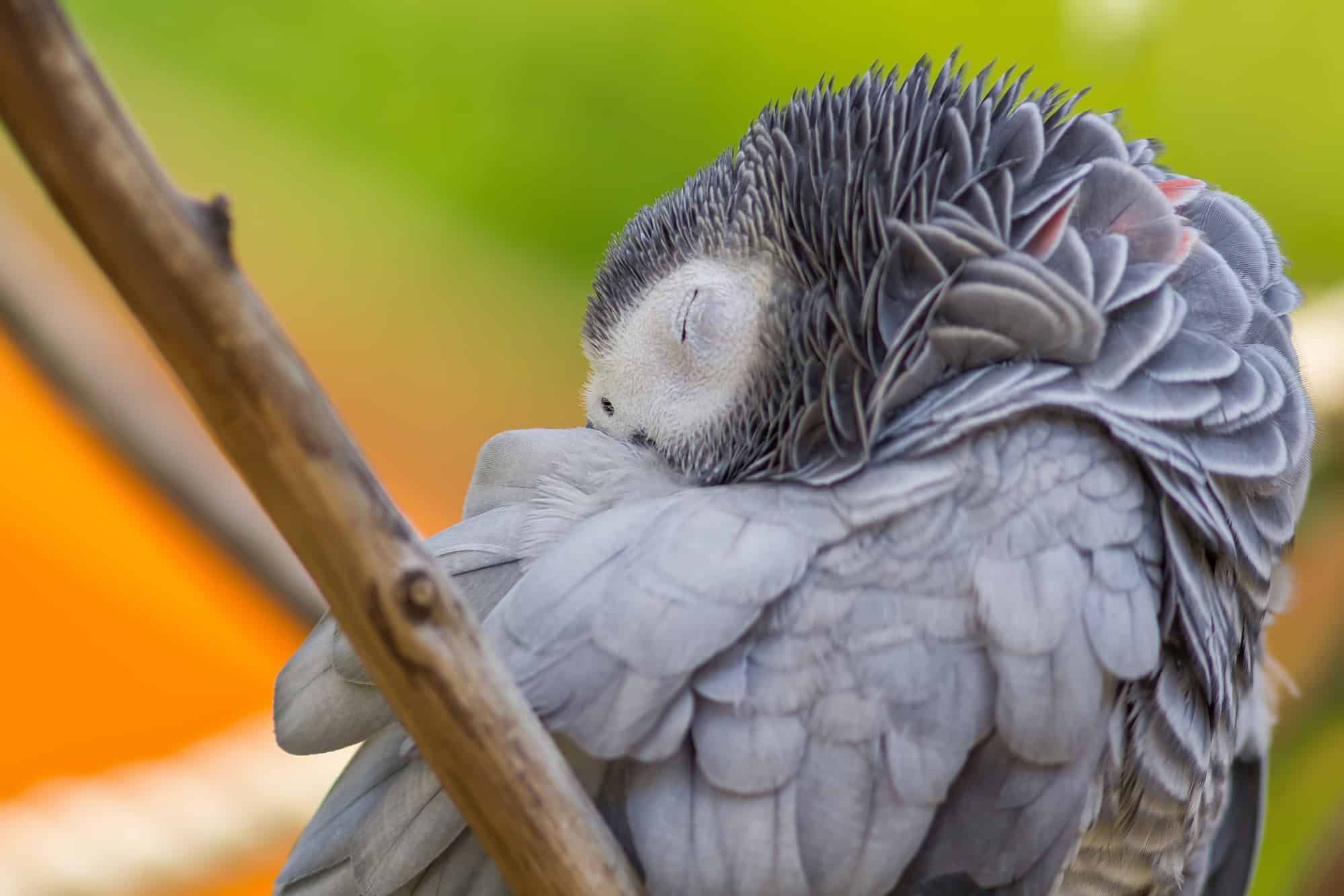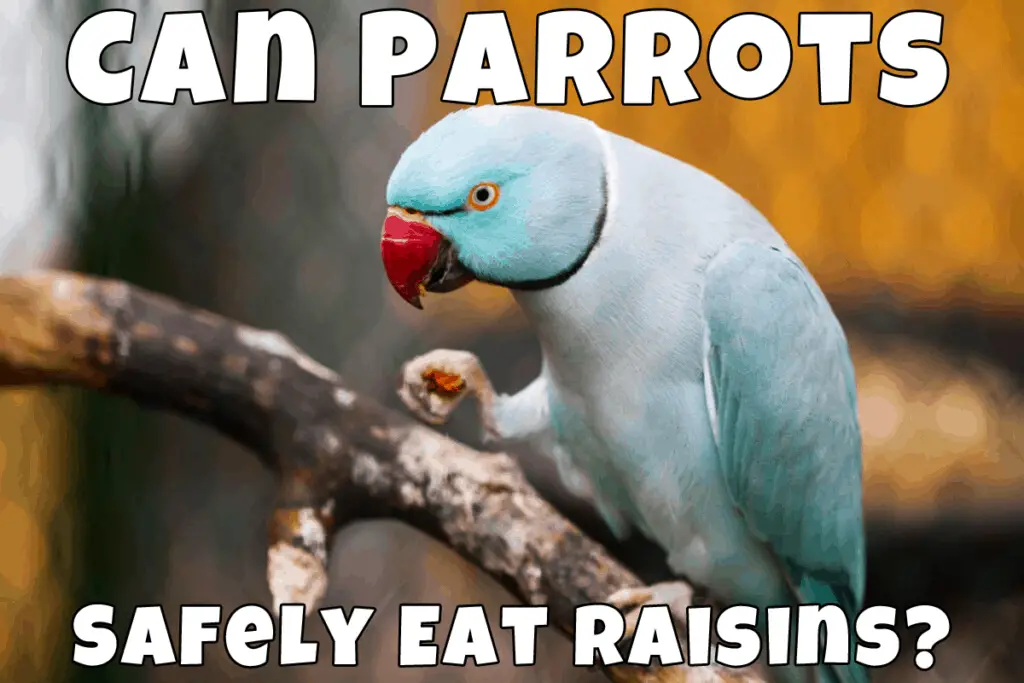Typically when I stay up during the night, my whole body clock goes out of day/night sync, and I become a nocturnal person. This makes me consider the question – are parrots nocturnal?
The short answer to this is – not all. Not all parrots are nocturnal. In fact, many of them are diurnal. This means they are awake during the day and sleep at night. Some species are nocturnal, but they are very rare.
Mostly all parrot species will be awake during the day with you unless you are yourself a nocturnal person.
Get to know about your parrot’s sleeping pattern from our post today.
Which Parrots Are Nocturnal?
We know only two nocturnal parrot species: Kakapo and the Night parrot. Both these species are very rare and marked as endangered.
Kakapo is a unique parrot because it is only one flightless parrot and a nocturnal bird. Kakapo is also known as Owl parrot, and it lives on the ground in New Zealand. It is also the parrot famous for having a polygynous breeding system opposite a monogamous breeding system. This parrot has quite a long lifespan that reaches up to 100 years.
The Night parrot was thought to be extinct since 1979, but it was re-discovered in 2005. In 2005 Night parrot was discovered and tagged again. It lives in Australia and is classified as endangered species.
Can You Buy a Nocturnal Parrot?
Because nocturnal parrots are really rare, it’s doubtful that you can find one in your pet shop for your entertainment.
Nocturnal parrots were not domesticated, so the only parrot you can find awake at night is the one that has a damaged sleeping pattern.
How Long Will Parrot Sleep?

It’s normal for your diurnal parrot to have a 10-12 hour sleeping cycle. Thanks to its tropical background, your bird will sleep from dusk till dawn. However, this can be different from one breed to another.
Parrots from regions far away from the equator usually have more sleeping hours in winter and sleep less in summer.
Also, keep in mind that parrot chicks may need more sleep until they grow up.
Are Green Cheek Conures Aggressive? Tips to Build Trust
Can I Make My Parrot Nocturnal?
The answer will be no; you can’t alter the parrot’s sleeping pattern so that the bird becomes nocturnal.
But, you can regulate the time when your parrot goes to sleep to adjust it for your needs. Still, you have to remember that the bird needs 10-12 sleeping hours. To regulate the time when he goes to sleep accordingly.
To regulate the sleeping hours, make sure the cage is in a dark place or has some kind of coverage on its cage. In this way, you mimic the evening environment and invite your bird to go to bed. Don’t forget to take off the coverage when it’s necessary.
As I said, you can alter the sleeping pattern completely, but you can adjust it so that your parrots are awake longer in the evening.
How Changes in Their Sleeping Pattern Affect My Parrot?
A few parrots might respond less well to having their sleeping schedule changed. Like humans, parrots may not like the fact that their sleep is interrupted, and they may feel heavy-headed during the day.
Be sure that they wake up and can play with you. However, you still may notice that the bird is groggy.
Are Parrots Afraid of the Dark?
What Are Benefits of Changing Parrot’s Sleep Cycle?
Be advised that if you change the bird’s sleeping pattern, this will affect its reproductive system.
Most proprietors are not hoping to breed their parrots, so it can turn into an issue if their bird starts to show reproducing ways of behaving.
Some owners report that their Amazons start to be aggressive or bite the owner if they try to adjust their sleeping patterns.
You can regulate the light exposure so that the parrot gets only 8-10 hours of sleep per day; this may help deal with the breeding needs. However, remember that such actions may be less effective for parrot species that originate from territories close to the equator.
What if My Parrot Sleeps Too Much?

If your bird sleeps for more than 12 hours per day without interruption, this may be a warning sign that something is not ok with the bird. In this case, look for other signs that can confirm your parrot is not ok:
- Ruffled feathering
- Parrot sleeps on the cage’s floor
- The parrot falls off the perch
Your parrot might be sleepless, in which case they might be exorbitantly plucking feathers, shouting, or being aggressive.
You should try and help them get back to their usual sleeping pattern. If these symptoms are still present, take the parrot to the vet.
Where Should My Parrot Sleep?
Traditionally, the parrot should sleep in his cage under a special covering. Alternatively, he can sleep in the sleep cage.
I have already mentioned the covering above. It can be used to create a dark space for your parrot. Covering signals the parrot to calm down and go to bed. However, this can cause night fears in the parrot. So I’d advise covering not all cage but keeping a slight gap so some light can get in the cage.
A sleep cage is another option. This cage with your parrot should also be placed in a dark room. The size of this cage is usually smaller than regular ones. It can be a good option if you have enough room in your house.
Should Your Parrot Sleep With You?
I would not recommend this. A parrot should not sleep with you in your bed. Because if you roll over, you can hurt the tiny bird, which is obviously dangerous.
You can place the cage next to your bed if you wish and have enough space for it. Also, ensure you are not allergic to parrots.
So if your room if dark enough for the parrot to sleep – go ahead and make your parrot sleep next to you.
What Is the Positions Do Parrots Sleep In?
The parrot’s position for sleep is similar to the flamingo’s pose. Usually, a parrot sleeps standing on one leg while another leg is tucked in its feathering. This pose is very stable so stay calm as the bird won’t fall off.
Another position for a parrot’s sleep is with its head hidden in its feathers.
Both poses preserve the heat during the night and let your parrot maintain proper body temperature.
Natural Sunlight vs UV Light?
In a perfect world, your parrot should get openness to steady light, something like one time each day.
Staying 4-6 hours outside in daylight is the ideal option for your pet. But even if you can do this for only an hour or two – that’s completely ok as it’s better than nothing.
You don’t need to place your parrot in bright sunlight. But be sure to have the parrot outside under a clear sky with no glass or screens as they will block the UV light.
Final Thoughts
You are amazingly improbable to have nighttime types of parrot as both the Kakapo and Night Parrot are highly uncommon and endangered breeds.
Still, you can slightly regulate your parrot’s sleep time to adjust it to your lifestyle. Keep in mind that parrots do have a particular sleep cycle for a reason, and altering it may cause stress for your bird.
If you are battling to fit on schedule for your pet, you might have to roll out specific improvements to oblige them.


